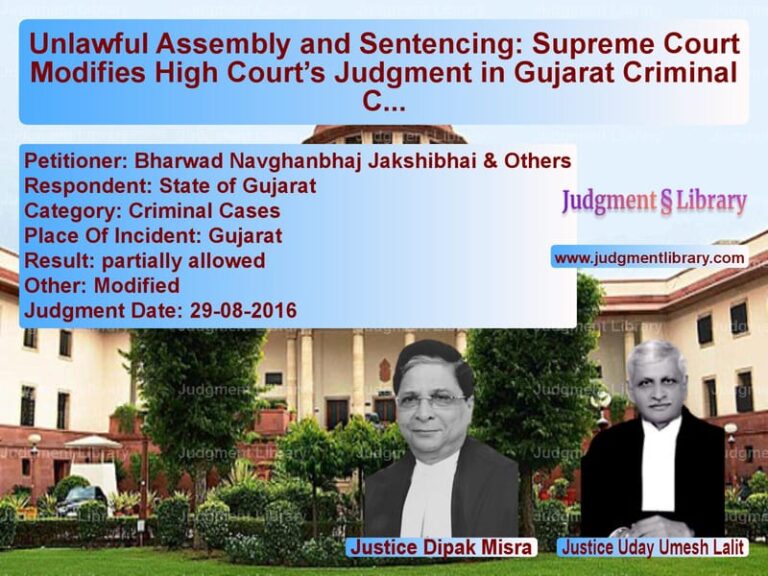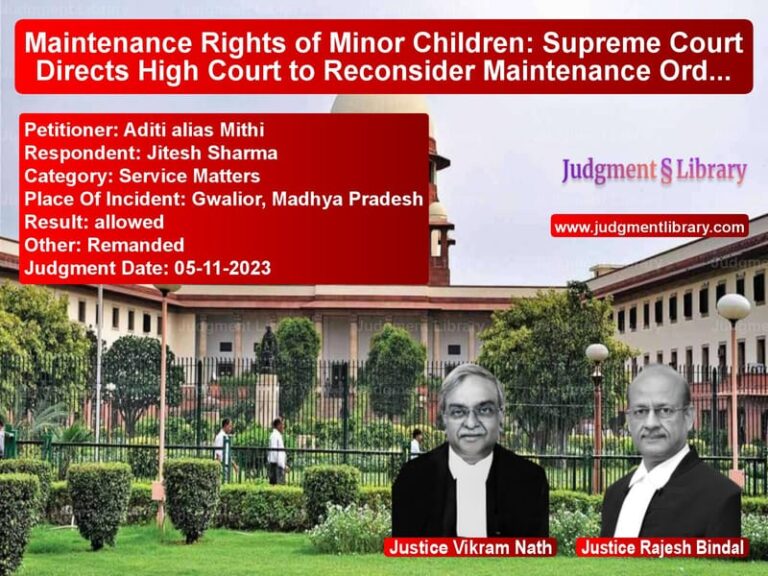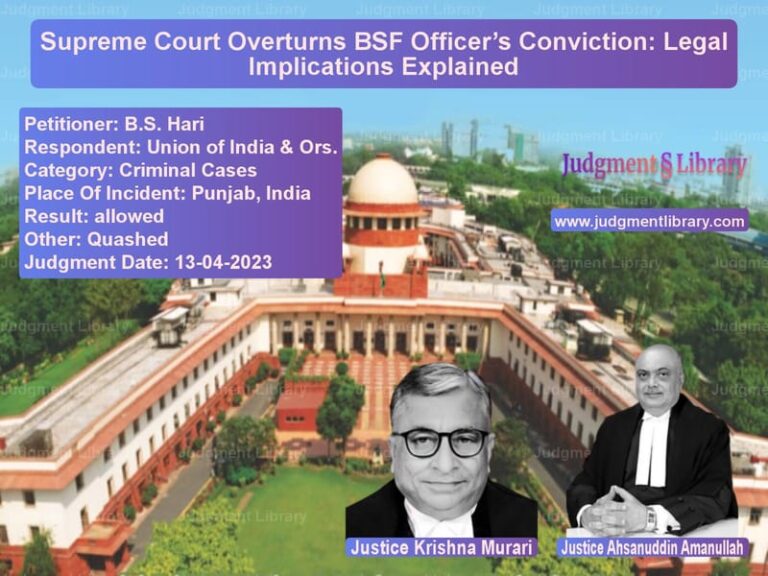Petrol Pump Dealership Dispute: Supreme Court Ruling in Krishna Devi vs. Indian Oil Corporation
The Supreme Court of India recently ruled in the case of Krishna Devi vs. Indian Oil Corporation Ltd., a crucial judgment concerning the allotment of retail dealership of a petrol pump and the legality of interim orders issued by the High Court. The case primarily addressed the dispute over the allocation process and the stay imposed by the Division Bench of the High Court.
Background of the Case
The dispute arose when the appellant, Krishna Devi, challenged the stay order issued by the Division Bench of the High Court that prevented her from operating a petrol pump dealership that had been allotted to her. The controversy centered around the allocation of a petrol pump dealership at Km stone 94-97 on S.H. 11 in Sonepat, advertised under Item No. 115.
Respondent No. 2 had filed a writ petition challenging the allotment made to Krishna Devi. The Single Judge ruled in favor of Respondent No. 2, leading to two appeals: one by Krishna Devi and the other by Indian Oil Corporation Ltd.
Legal Issues in the Case
- Whether the High Court was justified in staying the operation of the petrol pump pending the appeal.
- Whether the selection process for dealership allotment was flawed.
- Whether Krishna Devi had a legitimate claim to continue operating the petrol pump.
Petitioners’ Arguments
The appellant, Krishna Devi, argued that:
- She had been operating the petrol pump for over a year and had a vested interest in its continued operation.
- The selection process for dealership allotment was not fraudulent or arbitrary.
- The High Court’s decision to stay her operations caused irreparable loss to her livelihood.
Respondents’ Arguments
The respondents, including the Indian Oil Corporation Ltd. and the original writ petitioner, contended that:
- The selection process was flawed because the committee had placed Krishna Devi second in the merit list without proper land inspection.
- Respondent No. 1’s land suitability was determined post-selection, making the process unfair.
- Partition proceedings were pending on the land offered by Respondent No. 1, making the selection questionable.
Supreme Court’s Observations
The Supreme Court, comprising Justice Abhay Manohar Sapre and Justice Ashok Bhushan, examined the arguments and made the following key observations:
The Court noted:
“The High Court should not have passed the interim order of the nature which is impugned herein. Instead, having regard to the factual scenario, it could at best direct the parties to maintain status quo as existed on the date of the impugned order.”
The Court further observed:
“The balance of convenience, prime facie case, and irreparable loss considerations were more in favor of Krishna Devi rather than Respondent No. 2, who had challenged the allotment.”
Final Judgment and Directives
The Supreme Court ruled:
- The appeal filed by Krishna Devi was allowed.
- The stay granted by the Division Bench was set aside.
- The parties were directed to maintain status quo as of April 25, 2016, allowing Krishna Devi to continue operations pending the High Court’s decision.
- The High Court was requested to expeditiously decide the appeals without being influenced by the observations of the Supreme Court.
Implications of the Judgment
This ruling has significant implications for similar disputes involving dealership allotments and interim orders:
1. Protection Against Unwarranted Stays
The judgment clarifies that interim orders should not unfairly disrupt ongoing business operations without strong legal grounds.
2. Reinforcing Judicial Oversight on Selection Processes
The ruling ensures that selection processes for dealership allotments are properly scrutinized, without causing undue hardship to the selected candidate.
3. Setting a Precedent for Similar Business Disputes
The Supreme Court’s decision reinforces the principle that status quo must be maintained in cases where business operations are already ongoing.
4. Expedited Resolution of Business Disputes
The directive for a time-bound resolution ensures that dealership disputes do not remain unresolved for extended periods.
Conclusion
The Supreme Court’s ruling in Krishna Devi vs. Indian Oil Corporation Ltd. is a significant decision in business and contract law, ensuring fairness in dealership allocation processes. By overturning the High Court’s stay order, the Court reinforced the importance of maintaining status quo in cases where livelihood and business operations are at stake.
This case serves as a crucial precedent for future disputes concerning dealership allotments, emphasizing that judicial intervention must be balanced and fair.
Don’t miss out on the full details! Download the complete judgment in PDF format below and gain valuable insights instantly!
Download Judgment: Krishna Devi vs Indian Oil Corporati Supreme Court of India Judgment Dated 16-05-2016-1741860934586.pdf
Direct Downlaod Judgment: Direct downlaod this Judgment
See all petitions in Contract Disputes
See all petitions in Property Disputes
See all petitions in Judgment by Abhay Manohar Sapre
See all petitions in Judgment by Ashok Bhushan
See all petitions in allowed
See all petitions in Modified
See all petitions in supreme court of India judgments May 2016
See all petitions in 2016 judgments
See all posts in Civil Cases Category
See all allowed petitions in Civil Cases Category
See all Dismissed petitions in Civil Cases Category
See all partially allowed petitions in Civil Cases Category







